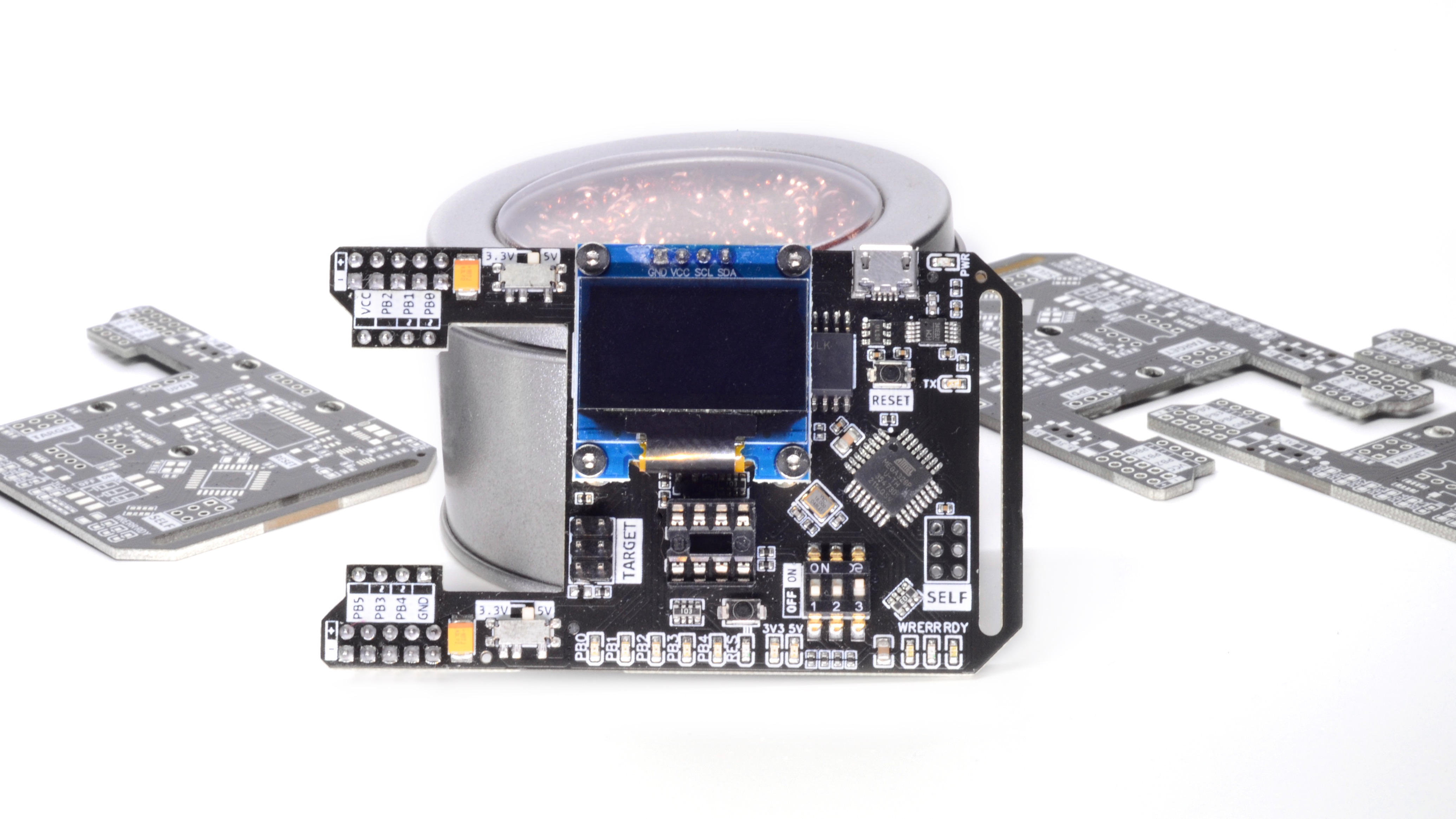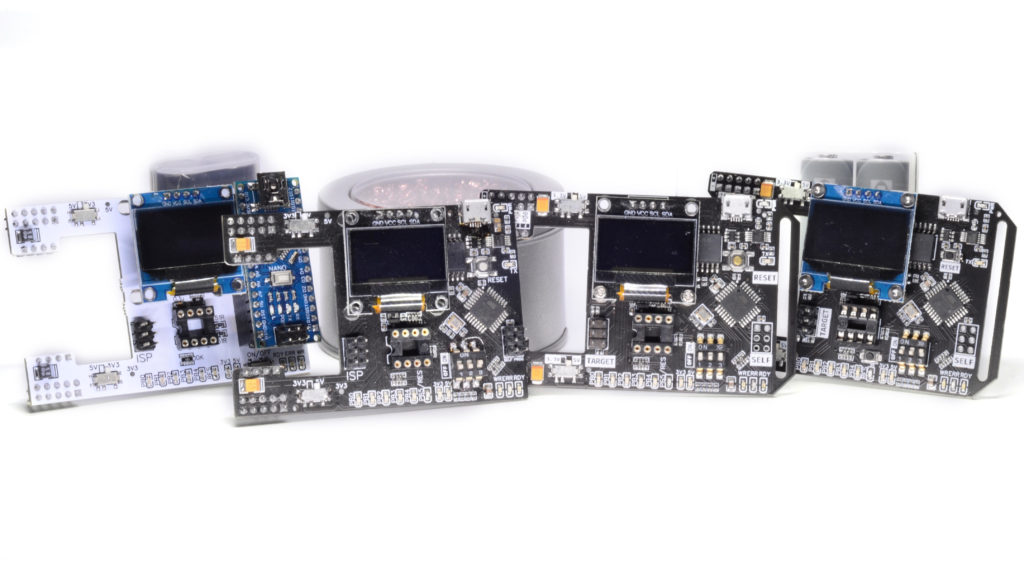


What is it?
This is small but handy tool, that makes ATtiny development experience as close as possible to normal Arduino boards, still using your favourite IDE and debugging tools.
Numerous projects implemented with wonderful ATtiny MCUs gave me few ideas on how to make whole process as simple as with “grown up” MCUs
Why mighty ATtiny?
- It’s dirt cheap
- It’s quite capable
- It’s just enough
- When it’s not, it’s challanging 😉
Why ATtiny Flasher?
- Code, build, flash, test, code again, without interuption. Just like normal Arduino board
- Debug using Serial. Just like normal Arduino board
- All GPIOs visualized, see what’s happening on the fly
- Sensor needs 3.3V, not 5V? Click, done!
Key features
- Flashing using Arduino IDE, Platformio or any other IDE of your choice
- Supports flashing ATtiny13/25/45/85 using onboard socket or on breadboard
- Updated: built in high voltage programmer
- Supports ATtiny, ATmega MCUs using ISP header
- 2 configurable power rails, either 3.3V or 5V
- 6 GPIO “weak” LEDs
- 3 flash status LEDs
- Onboard OLED screen connected to target MCU as live terminal
- Streams serial data to host PC, as if you’d be connected directly
- Buffer IC between target and host MCUs, only connects them together while flashing
- Open source, open hardware
What’s included in the package
- ATtiny Flasher assembled PCB with onboard host MCU
- OLED screen
Crows Supply campaign
Our Crowd Supply campaign is funded. Thanks to everyone supported our launch.
Documentation
Both software and hardware documentation can be found on project’s Github. You can follow project progress at Hackaday
Where to buy
You may support our work by ordering this product at Tindie
Credits
- Based on ArduinoISP code by Randall Bohn, with few features added
- Thanks Microchip for superb value for money MCUs

